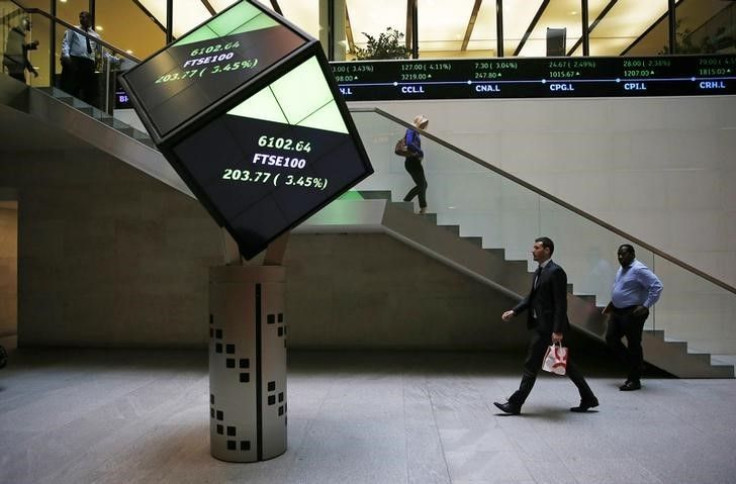Global Stocks Dip As Fed View Only Partly Soothes Markets

Stocks dipped and the dollar edged up on Tuesday after a Federal Reserve official's remarks appearing to make a near-term rise in U.S. interest rates less likely only partially calmed investor nerves before a speech from ECB chief Mario Draghi.
Fed Governor Lael Brainard on Monday cautioned against removing support for the U.S. economy too quickly. Her words weakened the dollar and sent U.S. stocks soaring.
But any sense of calm in markets looked fragile after three volatile trading days that saw bond yields soar and stocks rack up heavy losses, on concern monetary policy was reaching its limits as a tool to lift the global economy.
Futures traders cut the chances of a Fed rate hike at the central bank's Sept 20-21 meeting to just 15 percent from 21 percent, according to the CME Group's FedWatch tool.
"The Fed is divided between hawks and doves, but they will surely prepare the market fully before a hike, which is why after this speech it seems unlikely next week," said DZ Bank analyst Birgit Figge.
However, another trigger for the turmoil of the last few days was disappointment that the European Central Bank did not signal an extension of its bond-buying stimulus program at its meeting last Thursday.
Bank President Mario Draghi speaks in Trento, Italy, later on Tuesday.
European shares opened higher but quickly gave up most of their gains. The pan-European STOXX 600 index edged down less than 0.1 percent after losing almost 2.5 percent since Thursday.
"This rebound looks weak to me, and lacking in conviction. The economic environment in Europe is still not that good," said Terry Torrison, managing director at Monaco-based McLaren Securities.
MSCI's broadest index of Asia-Pacific shares outside Japan dipped 0.2 percent, reversing earlier gains, though the fall was far less than Monday's 2.4 percent.
Japan's Nikkei closed up 0.3 percent.
Wall Street surged on Monday after Brainard spoke, with the Dow Jones Industrial Average and the S&P 500 making their strongest gains since early July.
However, U.S. stock futures were both down 0.7 percent, pointing to a lower open for U.S. shares.
Markets largely shrugged off data showing China's industrial output grew at its fastest rate in five months in August while retail sales and investment last month also beat forecasts.
Chinese shares ended flat, with the upbeat figures seen making further economic stimulus unlikely.
German 10-year government bond yields, the benchmark or euro zone borrowing costs, fell 1.4 basis points to 0.03 percent, having turned positive on Friday for the first time since Britain's June 23 vote to leave the European Union.
U.S. Treasury yields also fell. Ten-year yields dipped 1 bps to 1.66 percent.
DOLLAR INDEX
The dollar index, which measures the greenback against a basket of six major currencies, rose 0.2 percent. The euro dipped 0.1 percent to $1.1220 while the yen was all but flat at 101.90 per dollar.
Sterling weakened 0.3 percent to just below $1.33.
"We've had a number of supportive comments from the policy hawks, but they are still struggling to convince the market. The dollar is right in the middle of the recent ranges," said Neil Mellor, a strategist for Bank of New York Mellon in London. "
Oil prices fell on concerns over increased U.S. drilling and as investor took profits on Monday's gains of nearly 1 percent. Brent crude, the international benchmark, was down 80 cents a barrel at $47.51.
Gold edged higher on the Fed outlook, last trading at $1,330 per ounce, up 0.2 percent.
© Copyright Thomson Reuters 2024. All rights reserved.











